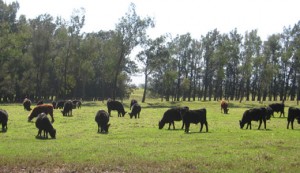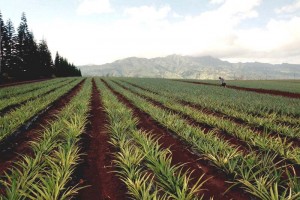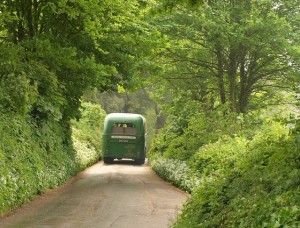OPINION: Saving “Ag” with Agricultural Tourism
Celebrity chefs. It seems like no matter the channel or the time of day, you can’t escape them.
By morning, a perky Giada De Laurentiis lovingly massages her cannoli for the camera, flashing panoramic-grins on the Food Network. By night, a red-faced Gordon Ramsay spews spittle-laced profanities all over aspiring chefs on Fox. Meanwhile on the Travel Channel, some poor dude is choking on a 20 pound omelet.
These guys are new to being famous, and few can seem to figure out whether they should be nauseatingly cheerful or excessively profane on-camera. But while chefs work out the kinks from their on-screen growing pains, a wonderful little thing is happening.
People are starting to care about food.
Whether it’s local or organic, heirloom or artisan, Americans (and Hawaiians) are taking notice of where food comes from, and how it’s grown. This is giving Hawaii-based farmers and ranchers a chance to profit from a rapidly growing trend toward agricultural tourism.
And thank goodness. Even in the best of conditions, agriculture is a tough business. Large mainland producers routinely deal with drought, pestilence, and wild price fluctuations. For local farmers and ranchers, all of the above nuisances are compounded by the added costs of doing business in the middle of the Pacific.
From calves to coffee, producers’ fates are too often tied to the price of the commodity they are growing. To distance themselves from that unpleasant marriage, local agricultural businesses have started experimenting with everything from horseback rides to gift shops in order to boost their bottom line.
Besides bringing in extra dollars, having tourists set foot on their farms raises the profile of producer’s products, helping to build a brand people will recognize long after they return home. Some entrepreneurs wisely exploit that relationship, turning visitors into customers by offering to ship items to their doorstep.
In a state where agricultural lands are increasingly being bought up for use as residential estates, such farmers can now find themselves in direct conflict with less commercially-inclined neighbors. A 2007 lawsuit filed against Kona Joe Coffee found that the company was violating state and county laws by conducting tours and selling products on its farm.
Such incidents are unfortunate, as the primary purpose of “ag” lands is not to provide picturesque vistas and luxury lifestyles, but to allow agricultural “activity.” People choosing to live in such areas shouldn’t be shocked by a bit of bustle.
This year, when tasked with defining what activities would be allowed on ag lands, the state legislature and governor came down firmly on the side of farmers and ranchers, passing Act 113, which authorizes agricultural-based commercial operations.
Act 113 allows for the preparation and sale of agricultural-related goods, agricultural tourism, and the promotion of logo-items (think t-shirts and mugs) on producer’s property.
On the Big Island, County Council Bill 266 faces its final reading on Sept. 19. The measure would open up zoning for a new category of business classified as “minor agritourism.”
The bill would exempt small operations from getting plan approval unless new construction is necessary. Small or “minor” agritourism operations would be classified as those receiving under 15,000 visitors per year (and no more than 350 per week).
This has created an outcry from people living in agricultural areas concerned about increased traffic. While it’s unclear how well visitor limits could be enforced, measures like the one being considered on the Big Island are an important early effort to diversify our agricultural industry.
Obviously, having an endless line of double-decker busses rolling through single lane roads would be unacceptable, and over time, rules and enforcement mechanisms will have to be tweaked to preserve public safety.
But for all the challenges agritourism may bring, it’s time we allowed producers more options for boosting their incomes, and raising their profiles.
Hawaii could use a few celebrity farmers.









